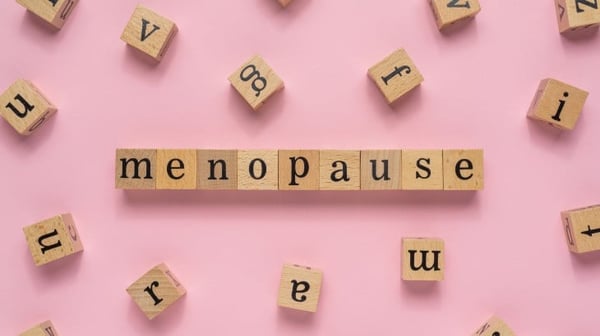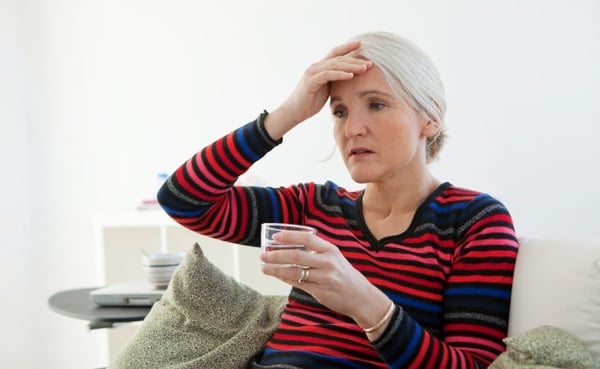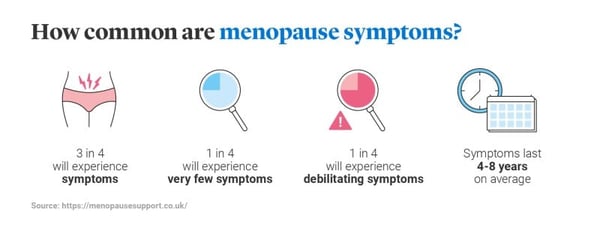What is the menopause?
Whether you call it ‘the change’ or ‘the time of life’, the menopause is a natural part of growing older for many of us. But whether you’re embracing the change, or feeling anxious about it, this guide will help answer some of the questions you may have.

You may also be interested in...
The menopause is when a person naturally stops having periods and is no longer able to get pregnant. It’s a normal part of ageing and usually occurs as oestrogen levels decline. At any given time, around 13 million women in the UK are experiencing the menopause.
This natural change often happens between the ages of 45 and 55. The average age for when the menopause starts in the UK is 51.
According to the NHS, around 1 in 100 people experience the menopause before the age of 40, which is known as premature menopause or premature ovarian insufficiency. It’s defined as a point in time 12 months after a person has their last period. The time leading up to this milestone in which changes in monthly cycles and symptoms occur is called the menopausal transition or perimenopause.
The menopause can also happen due to treatments such as chemotherapy and radiotherapy.
Usually, the menopause happens as we age and our ovaries naturally stop producing oestrogen and progesterone. Natural menopause is diagnosed by a combination of factors, focusing on the pattern of periods and any symptoms that are classically seen as menopausal, as we’ll explain next.
What are the symptoms of menopause?
Over 60% of people going through menopause will experience symptoms. Here are some of the most common symptoms:
- Hot flushes
- Night sweats
- Vaginal dryness or discomfort during sex
- Trouble sleeping
- Low mood or anxiety
- Reduced sex drive
- Issues with memory and concentration
It’s important to make sure you book an appointment with your GP if you have menopausal symptoms that are bothering you, or if you’re experiencing symptoms before the age of 45.

Symptoms like the ones mentioned above can begin months or even years before the final period, and in some cases last up to 15 years after. According to Age UK, menopause symptoms last on average for around four years.

What signals the end of the menopause?
Just as the menopause may not begin overnight, it probably won’t end overnight either, but will be a gradual shift towards the newest phase of your life.
Postmenopause is often reported as being a much more comfortable time. You may experience greater energy levels, a better ability to focus, increased libido and less problems with sleeping. This is because your hormones are stabilising, which means you can get back to feeling more like yourself again.
What are the benefits of the menopause?
Believe it or not, the menopause can have its upsides, and there are several benefits you may not have been aware of:
- No more menstruating. There can sometimes be a sense of relief that comes with the menopause, especially if you suffer with painful cramps, heavy bleeding, and PMS (premenstrual syndrome).
- No more birth control. After periods have stopped, there’s no longer a need to organise birth control (although you will still need to protect yourself from sexually transmitted diseases).
- The wisdom of experience. You can’t put a price on life experience. Psychologist Sylvia Gearing, PhD, told the American Psychology Association’s Monitor on Psychology that, in her experience, women in menopause have increased “clarity, decisiveness, emotional intelligence”.
Tips for coping with the menopause
Regardless of whether you embrace the change or not, menopause may still cause discomfort from time to time. Luckily, there are a range of tips and treatments you can have to help ease the symptoms:
- Hormone replacement therapy (HRT). Available as tablets, skin patches or as a gel, HRT replaces the hormones that are missing – and as most symptoms are caused by low oestrogen, it’s often extremely effective.
- Eat well. Hormonal changes can do all kinds of things to our bodies, so it’s important to make sure we’re eating a healthy diet rich in fruit, veg, calcium and vitamin D.
- Keep hydrated. Experiencing dryness is a common symptom of the menopause because of the decrease in oestrogen levels. Be sure to drink 8-12 glasses of water a day to combat it and help reduce bloating that can occur with hormonal changes.
- Move your body. Keeping active might not be entirely appealing when you’re not feeling your best but exercising daily is proven to boost your energy levels and produce those feel-good hormones.
- Combating hot flushes and night sweats. If you’re experiencing these symptoms because of the menopause, there are some simple things that may help. You could try wearing light clothing, keeping your bedroom cool at night, taking a cool shower and avoiding potential triggers like spicy food, caffeine, smoking and alcohol.
- Boost your mood. Mood swings, low mood and anxiety can also be a symptom of the menopause. In this case there are a few ways you can feel better at home. Make sure you’re getting plenty of rest, exercising regularly and doing relaxing activities such as yoga, tai chi, and meditating.
- Talk to your GP. If you have any concerns, or you feel you need some extra support, be sure to give your doctor a call.
Find out more about Over 50 Life Insurance
More articles and guides

Health checks for over 50s

Planning for the future
